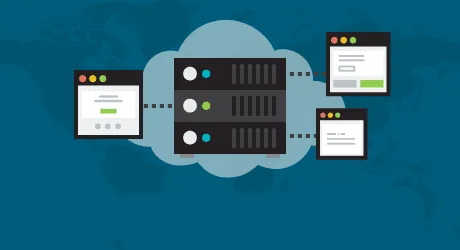Web hosting is an integral component in ensuring that the internet remains functional. All websites have to rely on web hosting to deliver their content to users. At the same time, developing and managing a website involves more than just web hosting benefits.
You need to design a proper layout for your website, manage the publication of relevant content and ensure the incorporation of suitable safeguards.
On the other hand, the choice of a suitable web hosting service is also a prominent concern for business owners. How can web hosting affect a business? What are the top options for web hosting now, and how are they different from each other?
You can watch Web hosting coupon videos to save money on storing and maintaining your site’s files and applications on a server. A web hosting provider stores a website’s files on a physical or virtual server and makes the website accessible on the internet. The provider also maintains, configures, and runs the server.
The following post offers some answers to your questions with an outline of the differences between a Virtual Private Server or VPS and a dedicated server.

Why Is Web Hosting Important Now?
The foremost question about web hosting services would emphasize the necessity of differentiating between two web hosting variants. However, some of the important doubts regarding web hosting have also pointed out the reasons behind preferring VPS or dedicated servers over shared servers. Most business owners undermine the long-term prospects for the digital presence of their business.
The general course of action for most of the websites emerging nowadays focuses on the limited need for resources.
Therefore, shared hosting is a preferred web hosting variant due to the facility of easy maintenance and shared architecture for affordability. On the other hand, websites have to evolve and grow consistently in the competitive business landscape.
As a result, the shared hosting approach could not accommodate the expanding requirements of websites. In such cases, websites would need an upgrade to their hosting model to manage the increase in traffic.
Rather than choosing shared hosting, websites could opt for a Virtual Private Server (VPS) or dedicated server, which can offer access to dedicated resources for websites.
The advantages of VPS and dedicated servers as web hosting options could help eCommerce business owners in adapting effectively to emerging resource-intensive needs and requirements for better security.
However, VPS and dedicated servers are different in terms of price as well as other critical factors.
Definition of Dedicated Server
The term ‘dedicated server’ tells a lot about its meaning, directly implying the facility of a complete physical server apparatus dedicated to a particular website. You must know about the importance of websites in online marketing now.
The dedicated server hosting model serves as the ideal choice for websites with heavy traffic. Only a single client receives access to the resources of the dedicated server, such as memory, bandwidth, and CPU. As a result, you can exercise complete control over the physical hardware running in your server alongside the underlying software.
Definition of VPS
VPS or Virtual Private Server hosting model relies on the virtualization principle for splitting the server’s resources into different virtual machines. A VPS follows the same model as a shared server, albeit with a specific share of dedicated resources for your website. For example, if a server has 10GB of RAM and your VPS grants 2GB of it, your website will control the 2 GB.
VPS can help in creating multiple virtualized environments, which are connected to the server through a hypervisor. On top of it, VPS also offers account isolation, thereby avoiding any conflicts in resource allocation.
Virtual Private Server web hosting also ensures that the performance of each virtual server is different from that of other websites.
Differences between VPS and a Dedicated Physical Server
The definitions of a dedicated physical server and a VPS or Virtual Private Server offer a basic impression of the differences between them. Learn more about the differences between VPS and dedicated servers in detail.
While a dedicated server is basically the sole physical server you can use for your website, a VPS is a shared virtual machine that offers dedicated resources for multiple websites or machines sharing the VPS. Apart from the fundamental difference in the way they work, you must also identify the differences between VPS and dedicated servers on the basis of the following pointers.
- Pricing
The comparison between VPS and a dedicated server would favor VPS as it involves considerably less cost than a dedicated server. Multiple users share VPS web hosting services, thereby dividing the cost.
On the other hand, dedicated servers involve the cost of physical infrastructure for the server alongside other costs, depending on the selection of managed or semi-managed dedicated servers.
- Security
Dedicated physical servers gain the upper hand over VPS in terms of security. Owners have complete control over the server resources and their security, along with access to multiple hosting packages for desired level of control.
In addition, the facility of complete ownership over the server also enables owners to implement resource management according to their requirements while addressing any security risks. On the other hand, virtual private servers are shared among multiple clients, thereby opening up multiple points of vulnerability.
- Scalability
The differences between VPS and a dedicated server are also evident in the capabilities of both approaches for supporting scalability. Dedicated servers offer better and faster setup alongside flexibility in ease of use. On this site you can learn thorough review of such service.
On the contrary, virtual private servers require configuration of the host server alongside the virtualization software.
The assurance of complete access to the resources, which clients could customize according to their needs, is a credible factor for ensuring better scalability. In addition, dedicated servers also offer many options in hosting services for accommodating different types of applications.
Which Web Hosting Model Would You Choose?
The difference between the dedicated server and VPS for web hosting could mean different things for various people.
For example, VPS is a suitable option for new businesses focused on garnering potential leads with their online presence.
On the other hand, dedicated servers are recommended for high-traffic websites. Each hosting model has distinct advantages and setbacks, depending on the requirements of clients.
Identify a clear list of your objectives before finalizing a specific web hosting service. Learn more about web hosting and the best practices for managing your online presence right now.



